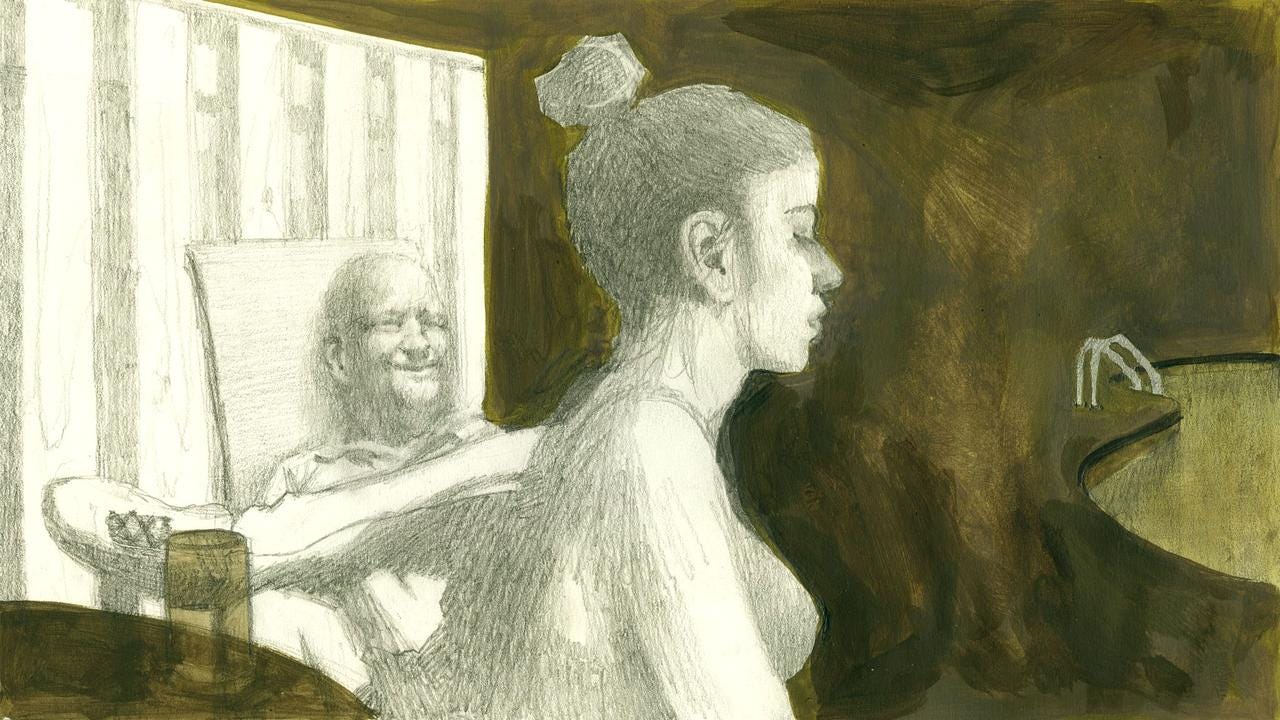Can German Atonement Teach America to Finally Face Slavery?
While living abroad I was struck by how Germans confront the darkest parts of their past—they even have a word for the process. When I learned about my American family’s slave-owning history, I wondered, ‘Shouldn’t we?’

Illustrations by Kyle McCullough
When I arrived in Florida, my grandpa picked me up in a new Cadillac that he had, according to my mother, bought with money from a reverse mortgage to impress a gold digger named Michelle. He drove me across Fort Lauderdale to a neighborhood of tract houses framed by shaggy palm trees. His house was a thin-walled 1950s ranch with interior design by Honey, his second wife — white leather sofas, silver-on-black bamboo-print wallpaper, vases of silk orchids — all neglected in the years since her death. The wallpaper was peeling at the edges, and wood was splintering off the cabinets. My grandpa gestured to a sideboard displaying dust-coated porcelain figurines of cats and shepherdesses. “Honey collected a lot of Trotskys,” he said. I was baffled until I realized he meant tchotchkes. The only mark of his presence in the house was a bookcase of opera DVDs and books by Ann Coulter and Glenn Beck.
He was my only living grandparent, almost ninety years old, and …

